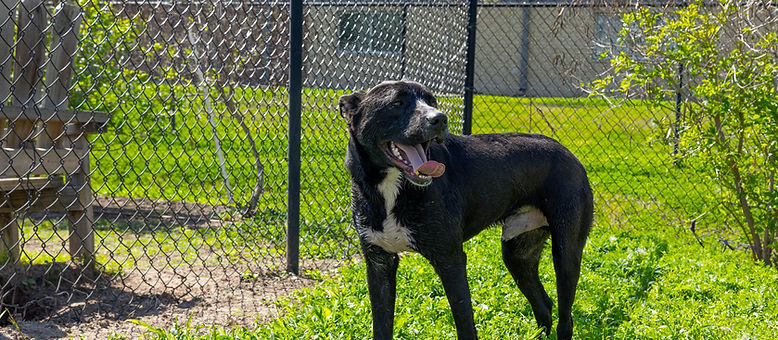
Since our inception, PVAS has grown from receiving several hundred animals a year, with 22 dog runs and 9 cat kennels, to serving 888,000 residents and more than 10,000 animals a year with 350 dog runs and 185 cat kennels. Our staff has grown from a few volunteer helpers to more than 100 trained professionals. Learn more about our programs, services, and impact here.

The evolution of animal welfare has impacted Palm Valley Animal Society (PVAS) in so many ways. From humble beginnings nearly 50 years ago, the organization grew in response to the number of homeless animals in the Rio Grande Valley. By the early 2000s, thousands of pets were coming into the shelter each year, but sadly, most were not leaving alive. By 2017, the number of homeless animals in the RGV had exploded, and PVAS was intaking more than 30,000 animals every year. Something had to give. Euthanasia wasn’t a solution that was working.
In May of 2018, the board of directors voted to pursue no-kill status*, and with the help of national animal welfare organizations such as American Pets Alive, Best Friends Animal Society, Maddie’s Fund, and the Petco Foundation, we began making strides towards the goal of finding live outcomes for at least 90% of the animals entering the facility. Since the introduction of many lifesaving strategies, the shelter save rate has made giant leaps from the 34% that it was in 2017, including exceeding a 90% save rate for all of 2020. We continue to work with our community and municipal partners to change animal welfare for the long-term in the Rio Grande Valley.
*No-kill is a benchmark created by Best Friends to help guide and focus efforts to save the lives of the pets most at risk in shelters. For a shelter to achieve a status of no-kill, 90% of the cats and dogs coming into the shelter must be saved. This benchmark is based on the average of no more than 10% of dogs and cats entering shelters who are suffering from irreparable medical or behavioral issues that compromise their quality of life and prevent them from being rehomed.

.png)

